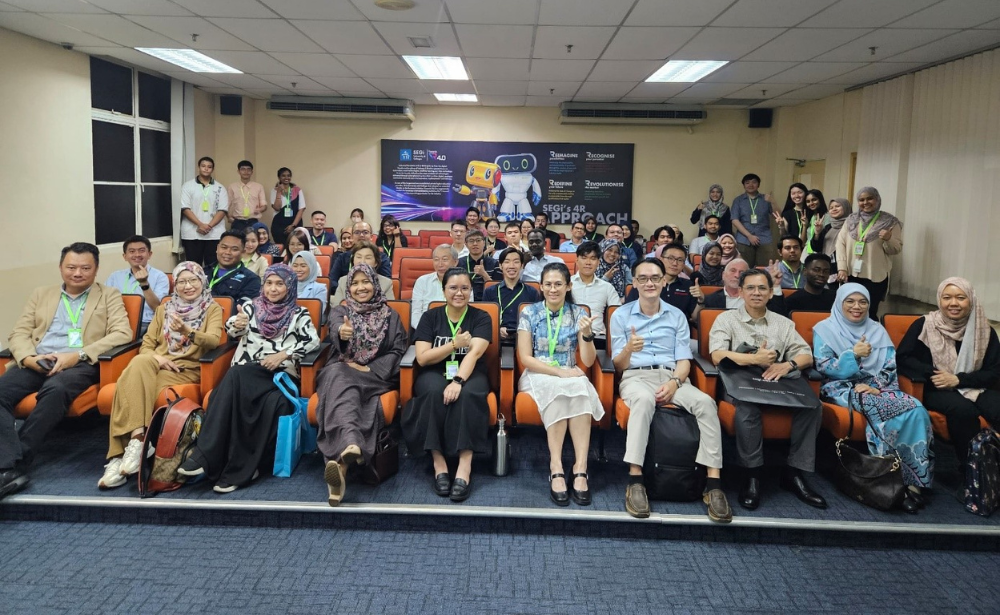SEGi University took a bold step forward in advancing environmental innovation through a one-day workshop on Emerging Materials, Technologies, and Analytical Techniques for Environmental Research, held on 9 May 2025. Organised by the Department of Chemical Engineering in collaboration with Universiti Tunku Abdul Rahman (UTAR) and Universiti Teknologi Malaysia (UTM), the workshop brought together top minds from academia, industry, and research in a joint effort to tackle some of the planet’s most urgent environmental challenges.
The programme featured eight compelling talks—four industrial and four academic—that explored revolutionary techniques in pollutant detection, wastewater analysis, and novel material development. Environmental research today demands precision and cross-disciplinary collaboration, and this workshop exemplified that by bridging academia with practical, real-world technologies. Hands-on demonstrations, powered by leading tech providers such as Hach Malaysia, Nexus Analytics, IKA Malaysia, and Nederman, gave participants practical insight into cutting-edge tools shaping the future of environmental science.
According to the UN Environment Programme, over 80% of the world’s wastewater is released untreated into the environment. The urgency to adopt cleaner and smarter technologies is no longer optional—it’s critical. Presenters like Emily Choo from Nexus Analytics and Muhammad Zulhilmi Bin Jamalus from Hach Malaysia highlighted how innovations in spectroscopy and wastewater instrumentation are transforming industry practices. From calorimetric analysis in waste sectors to explosion risk mitigation in dust-prone industries, the technologies shared are helping to build resilient, future-ready infrastructures.
On the academic front, emerging research presented by experts such as Assoc. Prof. Dr. Lau Woei Jye from UTM on microplastics, and Professor Ir. Dr. Siti Mazlina Mustapa Kamal from UPM on food waste valorisation, emphasised the importance of environmental stewardship through advanced characterisation and material recovery strategies. These insights are especially timely, as the UN warns that global waste is projected to rise by 70% by 2050 if urgent action isn’t taken.
The workshop wasn’t just about knowledge-sharing—it was a rallying point for environmental responsibility. It reinforced SEGi’s vision to embed sustainable practices and engineering solutions into its academic DNA while preparing future engineers to contribute meaningfully to a circular, low-carbon economy. Events like these act as catalysts for future collaborations that align research, innovation, and industry for the benefit of both society and the environment.
This event is organised in support of the following United Nations Sustainable Development Goals (SDG):
Goal 6: Clean Water and Sanitation
Goal 9: Industry, Innovation and Infrastructure
Goal 13: Climate Action

